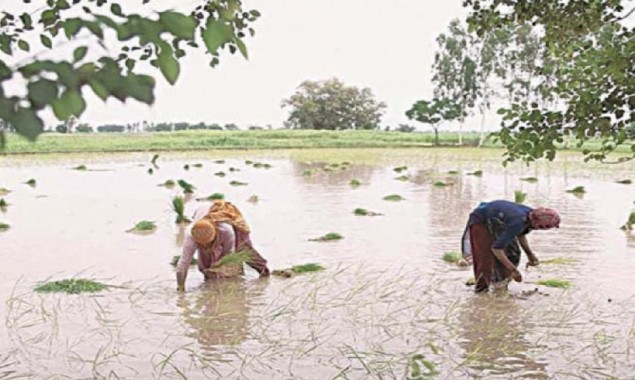Nestle sells stake in Pakistan for 34.2 million Swiss francs
KARACHI: The Société des Produits Nestlé S A (SPN) have acquired 26.778...

HYDERABAD: The office-bearers of the Sindh Abadgar Board (SAB) have demanded the government to withdraw tax on domestic production of cotton and cottonseed, as it will help the country save billions in foreign exchange.
During a meeting held at the Sindh Abadgar Board premises, the office-bearers said Pakistan is likely to spend $2.2 billion (Rs344 billion) on duty-free import of cotton, which was burdening the domestic production and the imposition of 17 per cent general sales tax (GST) on cottonseed in the Federal Budget 2021/22 would prove to be the last nail in the coffin.
This year, the rates of cotton are better than the previous years but the benefit was being reduced by the imposition of tax, they said, adding that the cotton crop had already seen a reduction in its production from 14.8 million bales to 7.5 million bales.
The government has not announced any measure in the federal budget to support the cotton growers, instead it has further burdened them. Moreover, the mill-owners tend to deduct money on the basis of moisture content in the paddy.
Internationally a certain level of moisture is allowed but in Sindh, the allowable moisture is not notified. They urged the Sindh government to involve stakeholders and notify the allowable moisture on which there will be no deductions.
The Sindh Abadgar Board officers showed surprise and dismay at the recent statement of the Punjab Irrigation Department regarding permission to allow water storage in the Mangla Dam and transfer of shortages to the provinces.
This viewpoint is difficult to understand, as the current water requirement of Kharif crops is more important than water storage in dams for future usage, they said, adding that this happened when the inflows in River Indus reduced and the water requirement as per the water accord was not available and the only way to reduce the shortages was to supplement it from the Mangla Dam till the inflows improve.
Even the water supplies from Mangla remained less, resulting in the shortage of over 15 per cent. Even today, Sindh is facing water shortage as the water is being stored in the Mangla Dam (43,000 inflow and 30,000 outflow).
When the inflows in River Chenab increased the water from River Indus is being withdrawn through Chashma-Jhelum and Taunsa-Punjnad link canals, whereas the command area of Chashma-Jhelum link and Taunsa-Punjnad link can easily be given water from River Chenab, they said.
The Sindh Abadgar Board office-bearers said Punjab gets water 15 days ahead of Sindh, as it is the upper riparian When the water inflows increases in rivers, Punjab gets water 15 days before Sindh, because of being the upper riparian. The underground water availability in Punjab is of 45 million acre-feet (MAF), while in Sindh it is 5 MAF. Likewise, the sowing season in Sindh starts 15 to 25 days ahead of Punjab.
They said they will remind the Punjab Irrigation Department that the wheat sowing season in Punjab was in April and May, and at the same time, Sindh was sowing Kharif crops but the water shortage in Sindh badly affected the crops.
The Punjab Irrigation Department should understand that the dams are a national resource and every province has their right on them.
Meanwhile, the meeting also discussed the monsoon season and demanded the authorities to make efforts for the cleaning of the drainage system to avoid flooding in future.
Last year’s rain is a stark reminder when the drainage system caused more problems and seven districts were declared calamity-hit, the meeting said, adding that not only the Kharif crops were destroyed but in some areas even cultivation of the Rabi crops was not possible.
It was raised that the drainage system of Badin, Mirpurkhas and others need to be cleaned and maintained to avoid colossal losses to the rural economy of these areas.
Catch all the Business News, Breaking News Event and Latest News Updates on The BOL News
Download The BOL News App to get the Daily News Update & Follow us on Google News.